Gaza genocide: will UN ruling change anything?
Commission of inquiry’s findings ‘give unprecedented weight’ to genocide claims
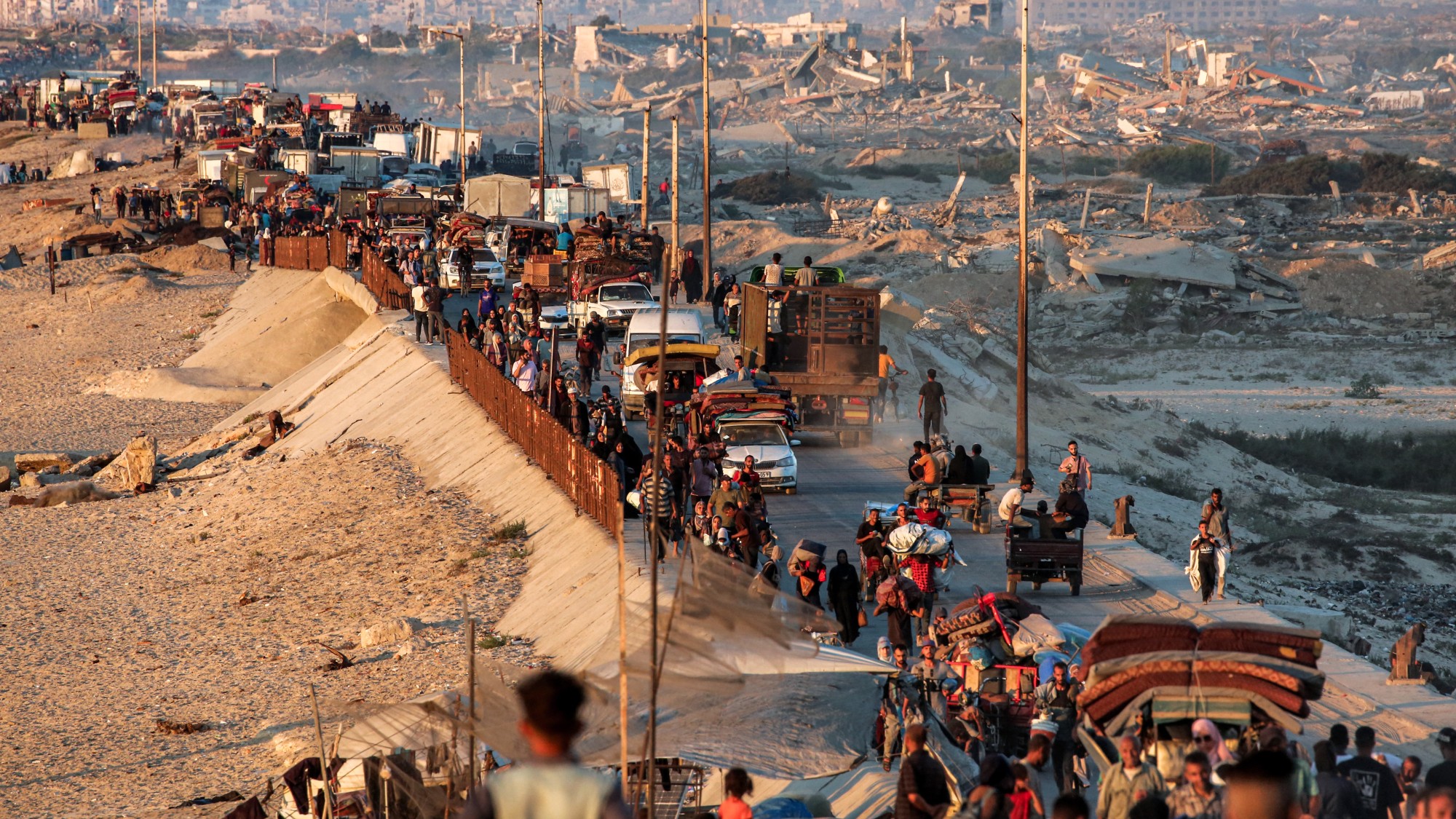
A free daily email with the biggest news stories of the day – and the best features from TheWeek.com
You are now subscribed
Your newsletter sign-up was successful
A United Nations commission of inquiry’s finding that Israel has committed genocide in Gaza has been described as a landmark moment, after at least 64,964 people have been killed in the occupied Palestinian territories in almost two years of war.
The commission cited statements by Israeli leaders, and the pattern of conduct by Israeli forces, as evidence of genocidal intent, and said its latest report on the war was “the strongest and most authoritative UN finding to date”.
Israel firmly denies accusations of genocide and insists it’s conducting the war in Gaza in self-defence and in accordance with international law.
The Week
Escape your echo chamber. Get the facts behind the news, plus analysis from multiple perspectives.

Sign up for The Week's Free Newsletters
From our morning news briefing to a weekly Good News Newsletter, get the best of The Week delivered directly to your inbox.
From our morning news briefing to a weekly Good News Newsletter, get the best of The Week delivered directly to your inbox.
What did the commentators say?
The findings will have a “profound impact”, said Paul Nuki in The Telegraph, because they will “make it harder” for governments to argue that sanctions are not needed when lawyers can point to the report of an independent UN commission.
The British government has previously said it hasn’t concluded that Israel is acting with genocidal intent, but that position will now “almost certainly be challenged” in the UK courts.
Although the reports are “not formally binding” for the work of international courts, they have a “strong persuasive value”, Professor Triestino Mariniello, an international law expert, told the Palestine Chronicle.
The International Court of Justice, which is currently hearing a case of genocide brought against Israel by South Africa, “cannot ignore” what the commissioners have said. And the Office of the Prosecutor of the International Criminal Court “should expand the scope” of its investigations and “finally cover the crime of genocide”. This gives “unprecedented legal and political weight to the charge of genocide in Gaza”.
A free daily email with the biggest news stories of the day – and the best features from TheWeek.com
The findings will “feed into the growing international condemnation” of Israel’s conduct, said Jeremy Bowen on the BBC, as it also comes from Israel’s “traditional Western allies” and the “Gulf Arab monarchies which normalised relations with Israel in the Abraham Accords”.
“Legally, it is hard to prove the crime of genocide,” but as the war in Gaza is “continuing and perhaps escalating further”, the report is “going to deepen international divisions”.
Many Western countries, including the UK, have said that only a court can rule on whether genocide has been committed, said Bel Trew in The Independent, but it may “take a decade” for the International Court of Justice to rule. By then, there “won’t be much of Gaza – or its residents – left”.
What next?
As Israel launches its ground offensive in Gaza City, the report is “validation” for Palestinians, said Malak Benslama-Dabdoub, a lecturer in law at Royal Holloway University of London, on The Conversation. “For international law, it is a test.”
The verdict will either trigger “real accountability”, including sanctions, embargoes and prosecutions, “or it exposes the gap between lofty promises and political reality”.
Chas Newkey-Burden has been part of The Week Digital team for more than a decade and a journalist for 25 years, starting out on the irreverent football weekly 90 Minutes, before moving to lifestyle magazines Loaded and Attitude. He was a columnist for The Big Issue and landed a world exclusive with David Beckham that became the weekly magazine’s bestselling issue. He now writes regularly for The Guardian, The Telegraph, The Independent, Metro, FourFourTwo and the i new site. He is also the author of a number of non-fiction books.
-
 Political cartoons for February 15
Political cartoons for February 15Cartoons Sunday's political cartoons include political ventriloquism, Europe in the middle, and more
-
 The broken water companies failing England and Wales
The broken water companies failing England and WalesExplainer With rising bills, deteriorating river health and a lack of investment, regulators face an uphill battle to stabilise the industry
-
 A thrilling foodie city in northern Japan
A thrilling foodie city in northern JapanThe Week Recommends The food scene here is ‘unspoilt’ and ‘fun’
-
 Israel retrieves final hostage’s body from Gaza
Israel retrieves final hostage’s body from GazaSpeed Read The 24-year-old police officer was killed during the initial Hamas attack
-
 What will happen in 2026? Predictions and events
What will happen in 2026? Predictions and eventsIn Depth The new year could bring peace in Ukraine or war in Venezuela, as Donald Trump prepares to host a highly politicised World Cup and Nasa returns to the Moon
-
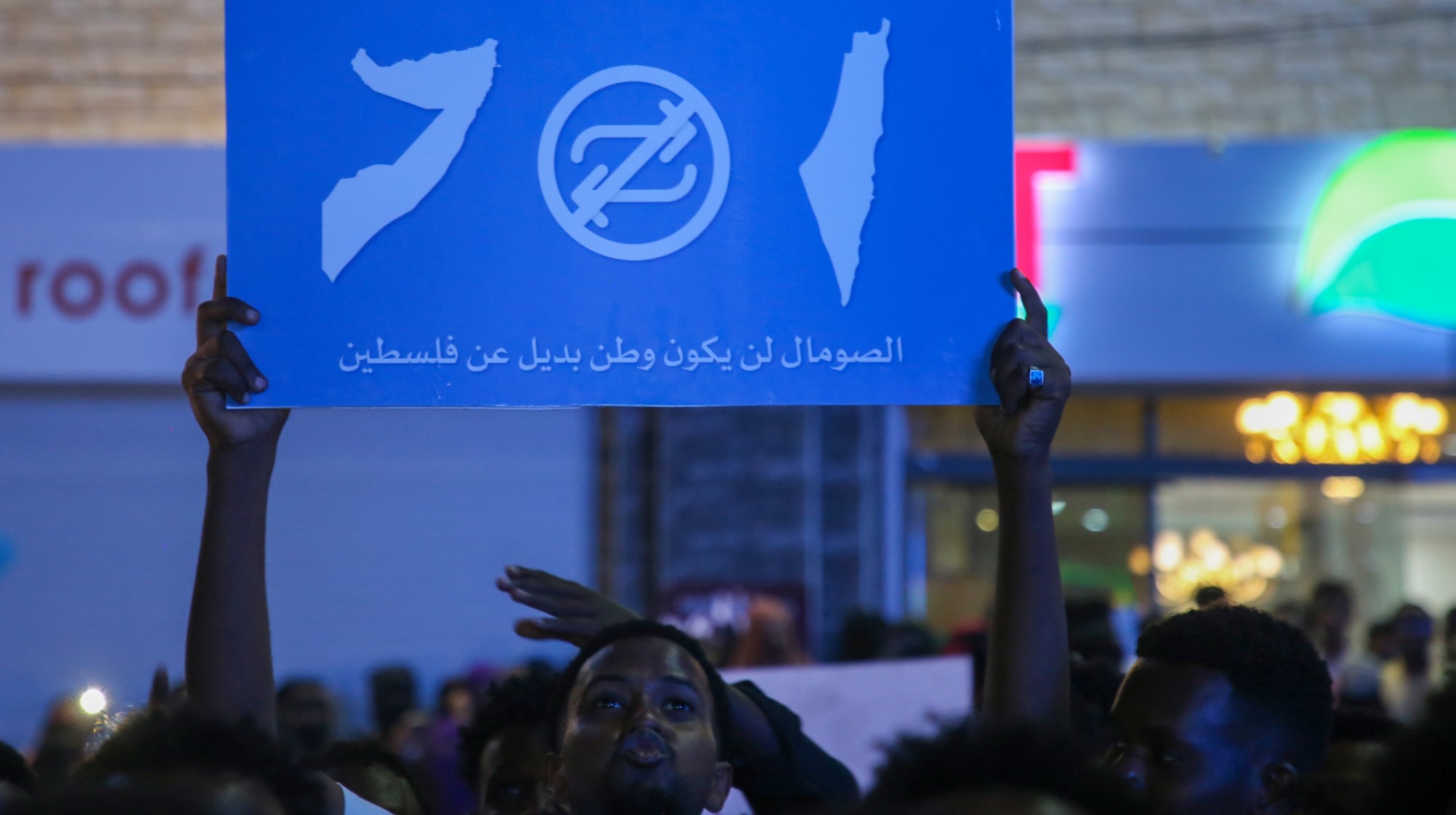 Why recognizing Somaliland is so risky for Israel
Why recognizing Somaliland is so risky for IsraelTHE EXPLAINER By wading into one of North Africa’s most fraught political schisms, the Netanyahu government risks further international isolation
-
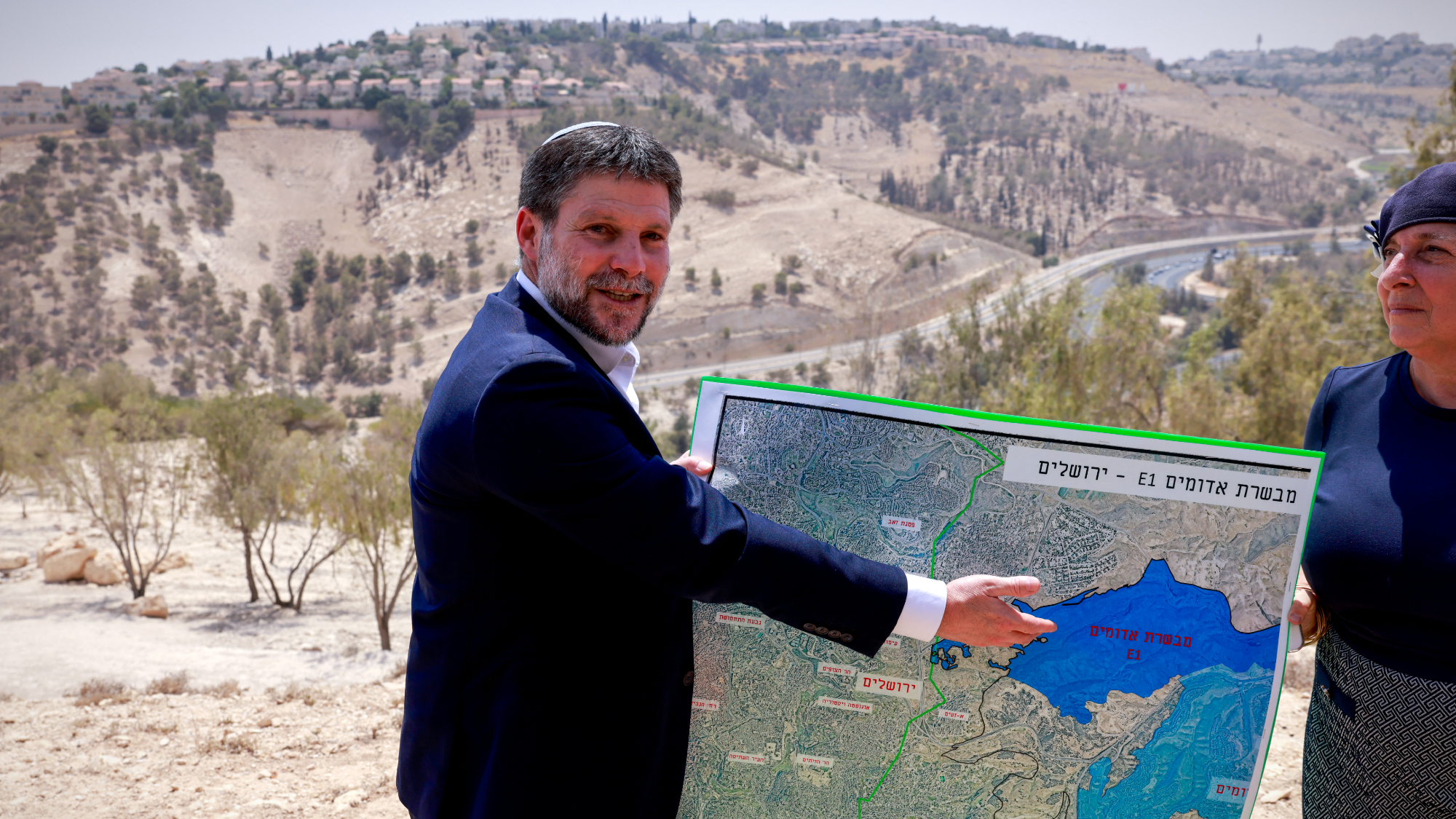 Israel approves new West Bank settlements
Israel approves new West Bank settlementsSpeed Read The ‘Israeli onslaught has all but vanquished a free Palestinian existence in the West Bank’
-
 Femicide: Italy’s newest crime
Femicide: Italy’s newest crimeThe Explainer Landmark law to criminalise murder of a woman as an ‘act of hatred’ or ‘subjugation’ but critics say Italy is still deeply patriarchal
-
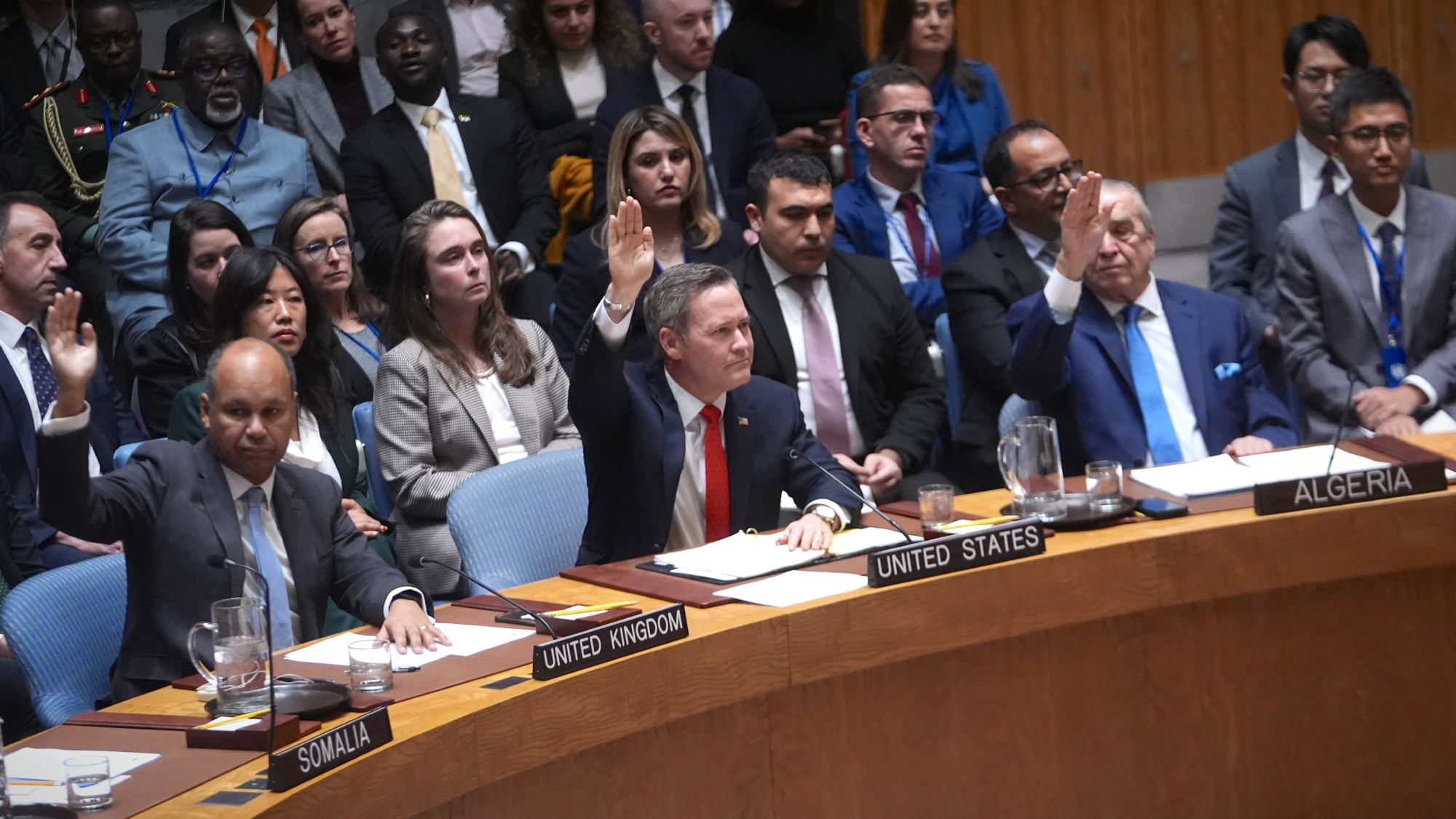 UN Security Council backs Trump’s Gaza peace plan
UN Security Council backs Trump’s Gaza peace planSpeed Read The United Nations voted 13-0 to endorse President Donald Trump’s 20-point plan to withdraw Israeli troops from Gaza
-
 Israel jolted by ‘shocking’ settler violence
Israel jolted by ‘shocking’ settler violenceIN THE SPOTLIGHT A wave of brazen attacks on Palestinian communities in the West Bank has prompted a rare public outcry from Israeli officials
-
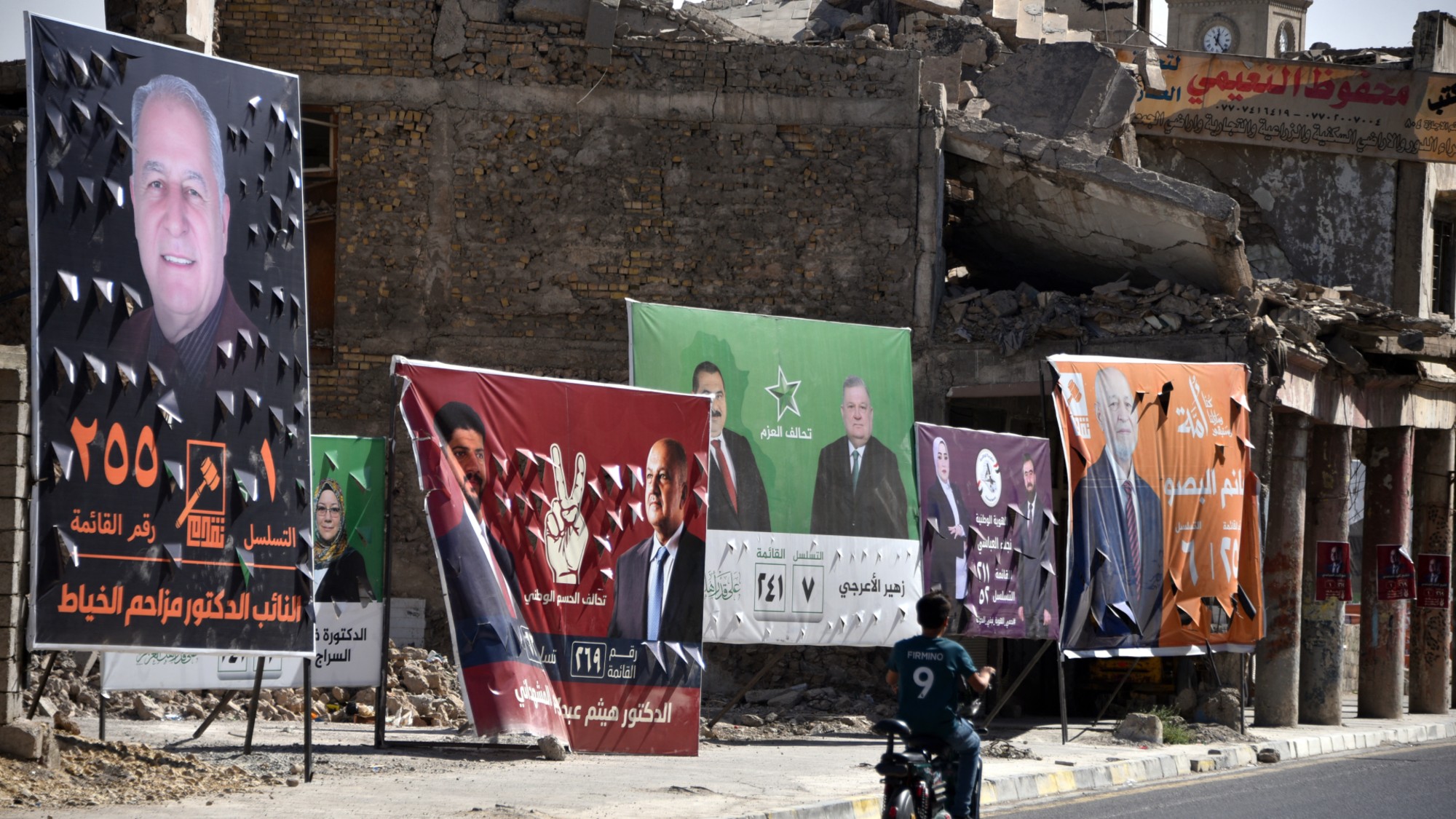 Why these Iraqi elections are so important
Why these Iraqi elections are so importantThe Explainer The US and Israel are increasingly pressuring Baghdad to tackle Iran-backed militants, while weakened Iran sees Iraq as a vital remaining ally